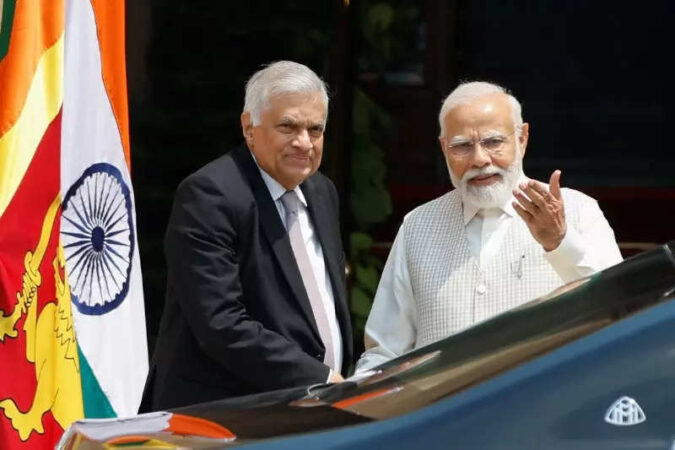The announcement came a day after the issue figured prominently in the wide-ranging talks between Prime Minister Narendra Modi and Wickremesinghe, with the Indian prime minister highlighting the need for the implementation of the 13th Amendment to the Sri Lankan Constitution.
Prime Minister Modi conveyed to Sri Lankan President Wickremesinghe, who arrived in New Delhi on Thursday on a two-day visit, India’s expectations from Colombo to fulfil the aspirations of the Tamil community in the island nation.
The Tamil community in Sri Lanka has been demanding the implementation of the 13th Amendment that provides for devolution of power to it.
The 13th Amendment (13A) was brought in after the Indo-Sri Lankan agreement of 1987. It created 9 provinces as devolved units with a temporary merger of the Northern and Eastern provinces.
In his media statement after the talks, Wickremesinghe said on Friday he shared with Modi the “comprehensive proposal” he presented this week for “furthering reconciliation, power sharing through devolution and the multiple elements of the Northern development plan.”
Jeevan Thondaman, the minister of water supplies who was part of the Wickremesinghe’s delegation to India, said the all-party meeting would be convened by mid-next week.
Thondaman, who represents the Tamils of Indian origin in the central hill plantations, said with the implementation of 13A, the outstanding issues of the Indian-origin Tamils would also be addressed.
Prior to his India visit, Wickremesinghe on Tuesday met the Tamil parties and assured them that the 13th Amendment will be fully implemented, without police powers, in the provincial councils.
“The president outlined plans for devolution, stating that the 13th Amendment with full powers except for police powers as outlined under List 1 (the subjects reserved for provincial councils) will be implemented, including specified functions in List 3 in the provincial councils list subject to agreement among political parties in Parliament,” the president’s office had said in a statement.
The List 3 entails provincial powers subjected to concurrence with the Centre.
India has been pressing Sri Lanka to fully implement the 13th Amendment as the answer to the Tamil demand for political autonomy for the Northern and Eastern regions.
Sri Lanka has had a long history of failed negotiations to end the Tamil claim of discrimination by allowing some form of political autonomy.
The Tamils put forward their demand for autonomy after gaining independence from Britain in 1948 which from the mid-70s turned into a bloody armed conflict.
The Liberation Tigers of Tamil Eelam (LTTE) ran a military campaign for a separate Tamil homeland in the Northern and Eastern provinces of the island nation for nearly 30 years before its collapse in 2009 after the Sri Lankan Army killed its supreme leader Velupillai Prabhakaran.
According to Sri Lankan government figures, over 20,000 people are missing due to various conflicts including the three-decade brutal war with Lankan Tamils in the north and east which claimed at least 100,000 lives.
